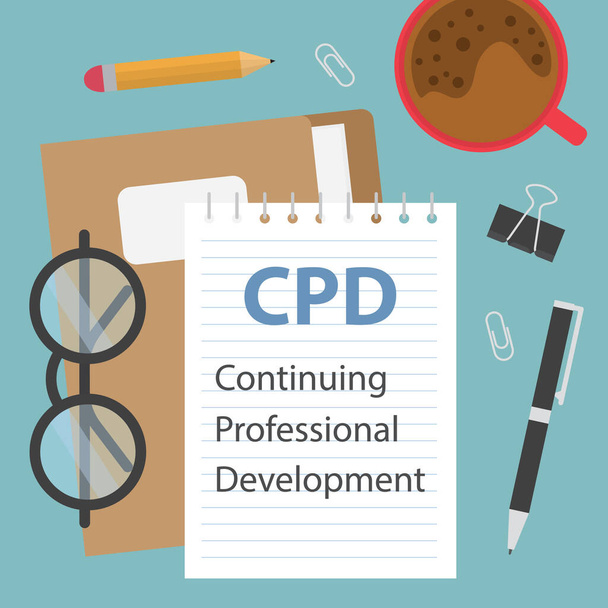Health professionals need to be lifelong learners. We need to keep up to date with new developments in our fields while maintaining relevant skills such as communication, procedures and patient safety.
To continue to be registered or accredited within one’s profession, most professional bodies in most jurisdictions expect evidence of learning and maintenance of competence typically referred to as continuing professional development (CPD). What CPD is required and what evidence must be submitted varies markedly globally and within and between professions.
In my early days as a GP, CPD was measured in hours undertaken and evidence was mainly through attendance at education events such as conferences, courses and, later, online modules. It was certainly possible to participate in a 5-day conference and collect all one’s hours, while enjoying the venue and social activities, without much thought as to the relevance of the learning or how it might change one’s practice. Many such events were sponsored by pharmaceutical companies and involved didactic information-giving sessions with little active or experiential learning.
For me, the need for specific learning is precipitated by my having insufficient capability to provide optimum care for some patients in certain situations or, in my education role, optimal facilitation of learning for others. The stimulus for clinical learning may be pithily captured by the phrase PUNs and DENs,[1] i.e., a patient’s unmet needs triggering a doctor’s educational needs. To meet the needs I may undertake a formal course, or I may search for suitable and trusted information to enhance my knowledge. Some CPD systems do allow self-reported informal learning, but evidence of that learning may be more difficult to provide.
In my experience, health professionals tend to learn much more than is captured by CPD points or hours: the moments spent reading journals over lunch; the discussions about patients with colleagues informally; the medicine data sheets when a patient is prescribed a new drug by a specialist…
What is interesting is that the evidence for the utility of formal measured CPD is lacking. What is CPD for and what should and can be measured in terms of outcomes? As with any educational intervention, we might say that patient outcomes are the important endpoint. Does CPD improve patient outcomes?
The problem is that CPD and any subsequent outcomes are not undertaken in a vacuum. Patient outcomes are dependent on systems and human factors that include but are certainly not limited to CPD. The major shake-up that led to the revalidation process in the UK, with its annual appraisal and other criteria including patient feedback, multi-source feedback and audit of performance, was, possibly, in part influenced by the story of the mass-murderer and GP Harold Shipman; though this may be a myth.[2] A 2018 evaluation indicated that revalidation has improved the practice of doctors who are causing concern but that its ‘impact on the majority of doctors whose performance is good’ is less clear.[3]
I was involved in a pilot revalidation process for general practitioners in the UK.[4] Colleagues highlighted that GPs tended to recognise the poorly performing GPs and hospital specialists in their area (‘I wouldn’t recommend him/her to my patients’), however weren’t sure what officially to do about them without firm evidence. Revalidation is one way of scrutinising the evidence, but we know that many instances of systems-based failures still rely on whistle blowers for action.
Has revalidation or other forms of CPD improved patient outcomes? How would anyone approach answering this question? In the UK at present, the NHS is severely stressed with increased patient contacts, decreased funding in real terms, lack of sufficient personnel, health professionals undertaking intermittent strikes, crumbling infrastructure and growing waiting lists. All these factors and more affect patient outcomes; I would suggest that CPD is a minor factor among many. It is impossible to evaluate the effects of CPD alone in the presence of so many confounding factors.
A recent systematic review of CPD for regulated health professionals in Australia included eight research questions answered through 37 studies meeting the inclusion criteria.[5] Of interest to me are that there is no evidence to support an optimal quantity of CPD (eg the number of hours); CPD is likely to be more effective if interactive and in diverse modes (adult learning) rather than didactic; CPD does appear to lead to practitioner behaviour change however most of the studies reporting patient outcomes showed no statistical significance; and mandatory CPD increases participation (which is not surprising). However, the authors do stress that there is a lack of well-designed studies to answer the questions.
In addition, outcomes evaluation is necessary but not sufficient to explore how and why any outcomes, either positive or negative, arise. A scoping review published 2 weeks ago that includes 101 studies across a range of medical specialities, topics and countries highlights the lack of rigorous evaluation of formal CPD. Studies tend to be undertheorised, with unclear reporting of methods and focused mainly on outcomes.[6] This results in difficulty in understanding what are the potential causal pathways that influence learning and subsequent performance – an understanding that could help CPD designers and providers offer more useful interventions.
CPD is important and it has a place in professional lives. However, we need to consider its effects and the pressures on the workforce within health care systems that may impede development, impact negatively on patient care and safety, and reduce workforce retention.
[1] Eve R. PUNs and DENs. Radcliffe Medical Press, 2002.
[2] For an interesting summary of the development of revalidation and a 2017 review of its performance see: https://www.gmc-uk.org/-/media/documents/Taking_revalidation_forward___Improving_the_process_of_relicensing_for_doctors.pdf_68683704.pdf
[3] https://www.alliancembs.manchester.ac.uk/media/ambs/content-assets/images/news/Final-report—the-development-and-impact-of-medical-revalidation—final.pdf
[4] Charlton R, Coomber J, Thistlethwaite JE. Re-licensing of general practitioners using the current UK revalidation proposals: a cross sectional study. Postgraduate Medical Journal 10.1136/postgraduatemedj-2011-130289
[5] https://human-resources-health.biomedcentral.com/articles/10.1186/s12960-023-00803-x
[6] Hosseini et al. Evaluation of Continuing Professional Development for Physicians – Time for Change: A Scoping Review PME 2023; https://pmejournal.org/articles/10.5334/pme.838
